Literature, like culture in general, cannot be destroyed or stopped by missiles, tanks, or armies of Russian soldiers deluded by Kremlin propaganda. Literature lives in defiance of everything, and even war cannot affect the desire of Ukrainian writers to create new worlds and address issues that, at first glance, seem unrelated to the tragic pages of Ukraine’s history today. What challenges will humanity face as it extends its life and colonises Mars? How can a classic 19th-century horror story be turned into a stylish detective novel? What myths and beliefs inhabit the steppes of eastern Ukraine, where hostilities are currently taking place? The range of themes in contemporary Ukrainian science fiction is as limitless as the courage of Ukrainian soldiers resisting Putin’s hordes in the east.
From invigorating space operas with unpredictable plot twists, magical realism, and ethno-fantasy to exciting thrillers and mystical horrors, or hard science fiction warning humanity about its near future, modern Ukrainian writers, with their rich imagination, sense of style, and excellent literary language, can compete with their renowned Western counterparts and captivate readers on both sides of the Atlantic.
Max Kidruk, “Colony,” from the “New Dark Ages” cycle
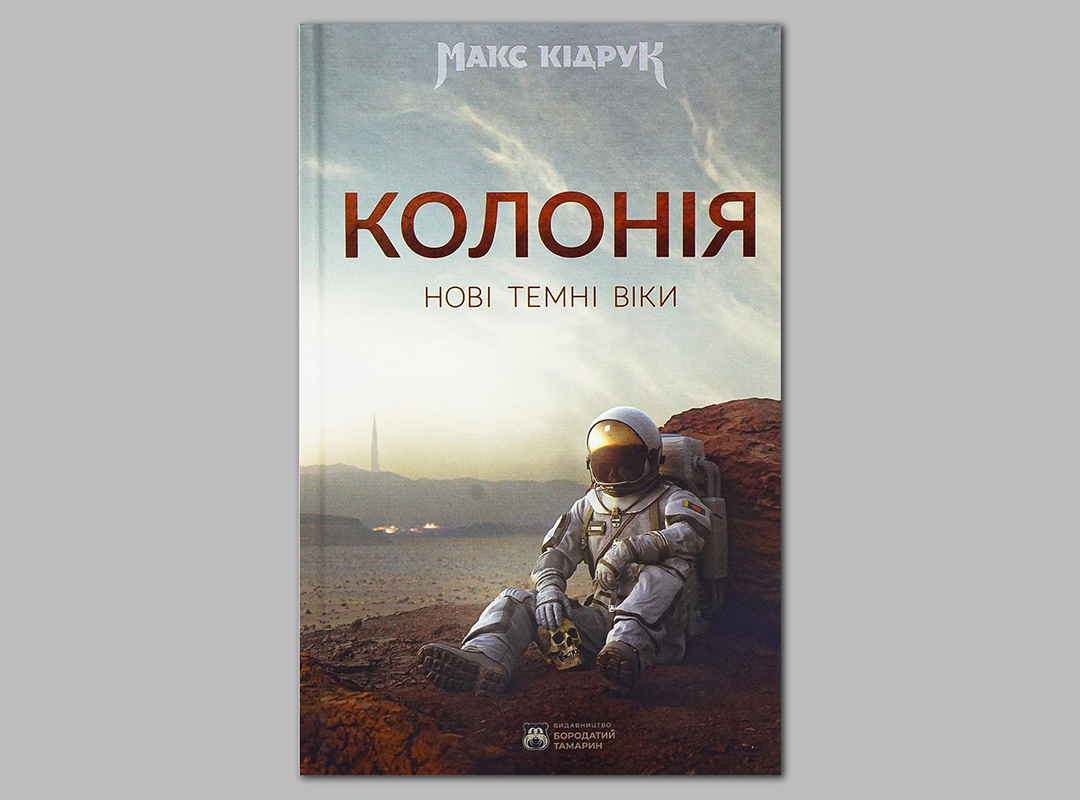
The number one science fiction bestseller in Ukraine, “Colony” made it to the long list of the BBC Book of the Year award and, with its realism and detailed depiction of the future world, can compete with serious novels like Peter Watts’ “Blindsight.” “Colony” is the first book in the “New Dark Ages” series about the world in the 22nd century. It tells the story of how, despite all the achievements of civilisation, humans do not change, and neither increased life expectancy nor even becoming a two-planet species guarantees humanity’s salvation. The action of the first volume unfolds in 2141 on Earth and colonised Mars. Humanity is only beginning to recover from a terrible global pandemic caused by the “Clodis” disease, with a group of immunologists working on its causes and consequences. However, Earth’s problems are not limited to this. Abnormal neutrino bursts are recorded around the planet, and serious social tensions are brewing in the Martian colonies, which are supposed to become a second home for the human race. The author also pays attention to the sad consequences of the Russo-Ukrainian wars, of which there have already been two by the time the novel takes place.
Volodymyr Arenev, “Dragon Bone Powder”
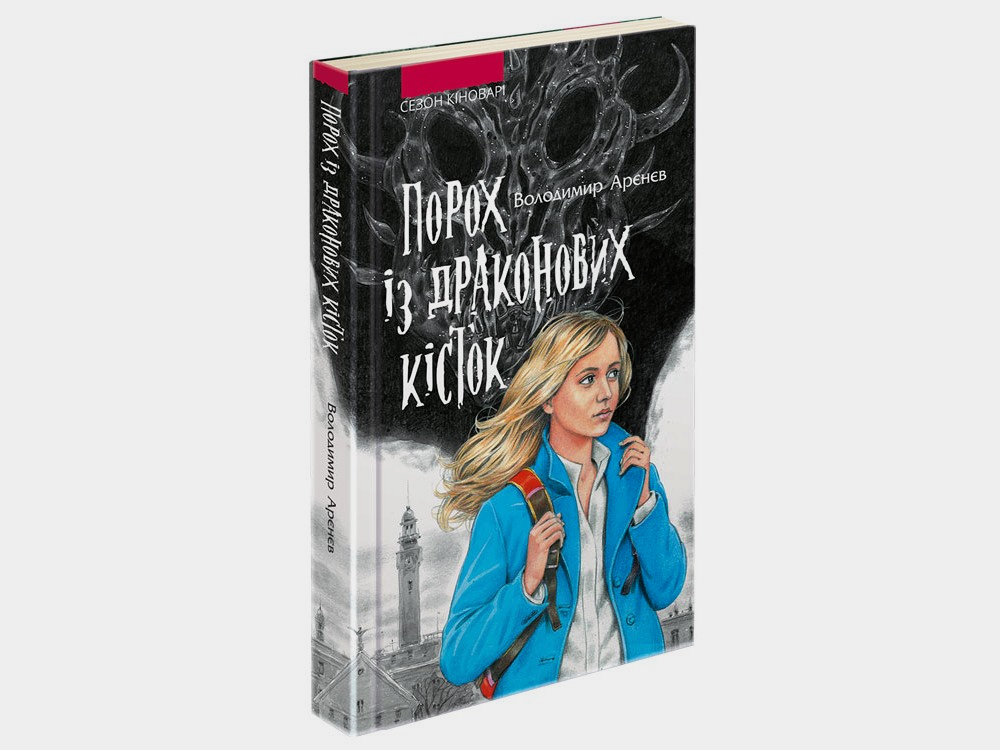
Ukrainian writer, literary critic, and journalist Volodymyr Arenev works in various genres, from children’s and young adult literature, combining fantasy and science fiction with humour and educational elements, to science fiction, fantasy, and dystopias for adult readers. His works include captivating children’s space fiction, “Sapiens,” and adventurous ethno-fantasy about a Cossack sorcerer, “Devil’s Soul or Cursed Treasure.” One of Arenev’s most unusual and intriguing works is the trilogy “Cinnabar Season,” currently represented by two books: “Dragon Bone Powder” and “The Child of the Dogheads.” In this trilogy, with elements of social drama and magical realism, the author depicts a world similar to ours but with a series of magical assumptions. The main character of the book, high school student Marta, nicknamed Witch, lives the ordinary life of a provincial teenager dreaming of escaping her town for the capital. However, money is needed for this, so Marta engages in illegal “black archaeology” – digging up and enchanting what is eagerly bought on the “black market” – ancient toxic dragon bones that once ruled this land.
Yevhen Lir, “The Steppe God”
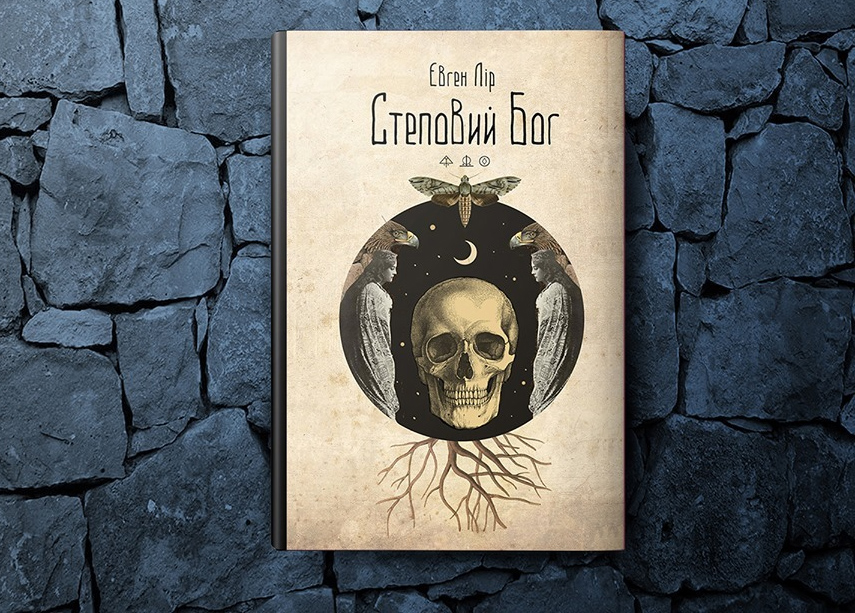
The author of the existential horror collection “Underground Rivers Flow” and the translator of works by Robert Chambers and Aleister Crowley into Ukrainian, Yevhen Lir, in his novel, turns to the mythology of the steppe and offers an original interpretation of the epic and worldview of eastern Ukraine. “The Steppe God” tells the story of 14-year-old Serhii from the provincial town of Zapropadiv. The action takes place in the early 2000s in the setting of a typical eastern Ukrainian town. One day, his parents take him to a mysterious hermit, a Chornobyl survivor Viktor Ostapovych, who possesses secret knowledge and unusual power. This acquaintance changes the protagonist’s life. Serhii becomes very interested in the personality of the steppe sorcerer and starts traveling out of town to visit him, seeking learning and communication, discovering the secrets of the steppe and the mystical creatures that inhabit it. Eventually, Serhii faces a choice – to live an ordinary life as an “easterner,” or to succumb to the charms of the steppe sorcerer and plunge into the unpredictable and unknown world of the “other side.”
Svitlana Taratorina, “The House of Salt”
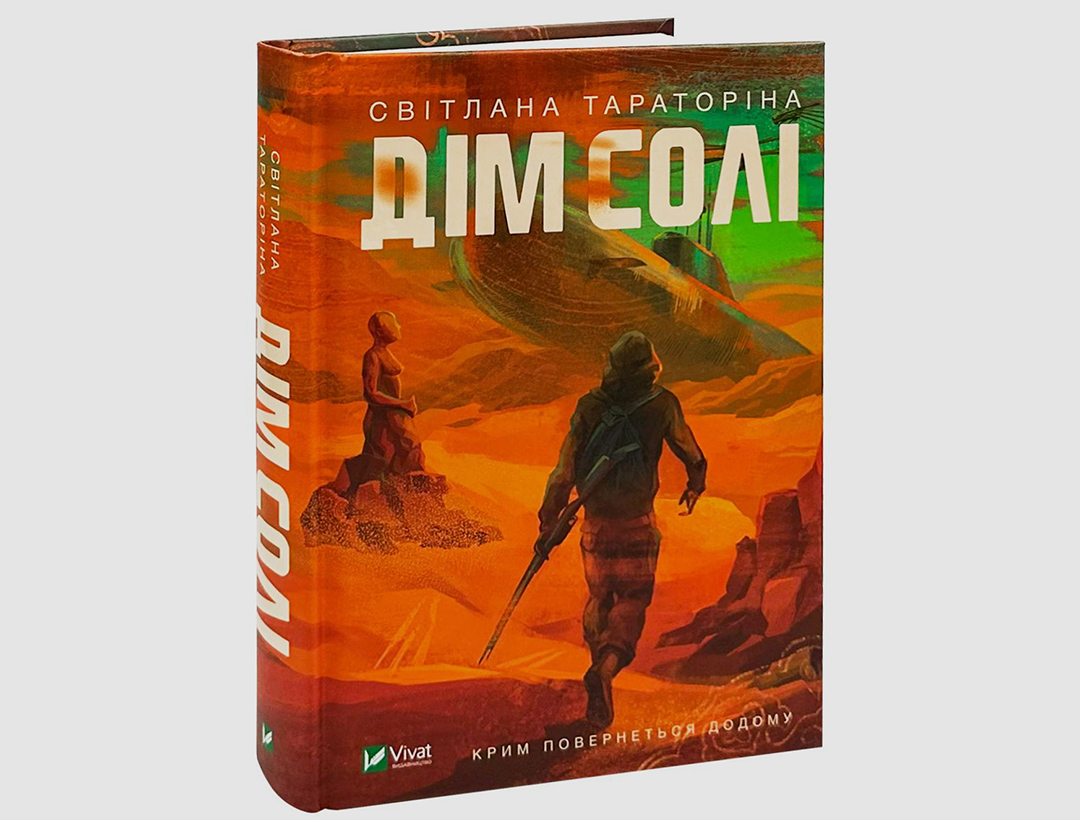
Ukrainian writer, journalist, and PR specialist Svitlana Taratorina grew up in Crimea and debuted with a historical fantasy detective “Lazarus,” set in the early 20th century in Kyiv, a city on the edge between the human world and the supernatural. However, her new novel, published in 2023, “The House of Salt,” was written in the genre of post-apocalyptic fiction with elements of alternate history and is based on the mythology and history of Crimea (including allusions to the annexation of the peninsula by Russia in 2014). The events of the novel partly resemble another famous “sand saga” – Frank Herbert’s “Dune.” Flashes – catastrophes of an unexplained nature – have turned the once flourishing peninsula of Kimmerik into ashes. The inhabitants of the land who managed to survive have become salted, and from the flying station “Mother of Winds,” the Elders look down on the dead world. One of them, Talavir, is tasked with investigating a murder and finding the Golden Cradle – a mysterious weapon developed by scientist Mamai. But once he sets foot on the dried land, he will not be able to return.
Illarion Pavlyuk, “I See You Are Interested in the Dark”
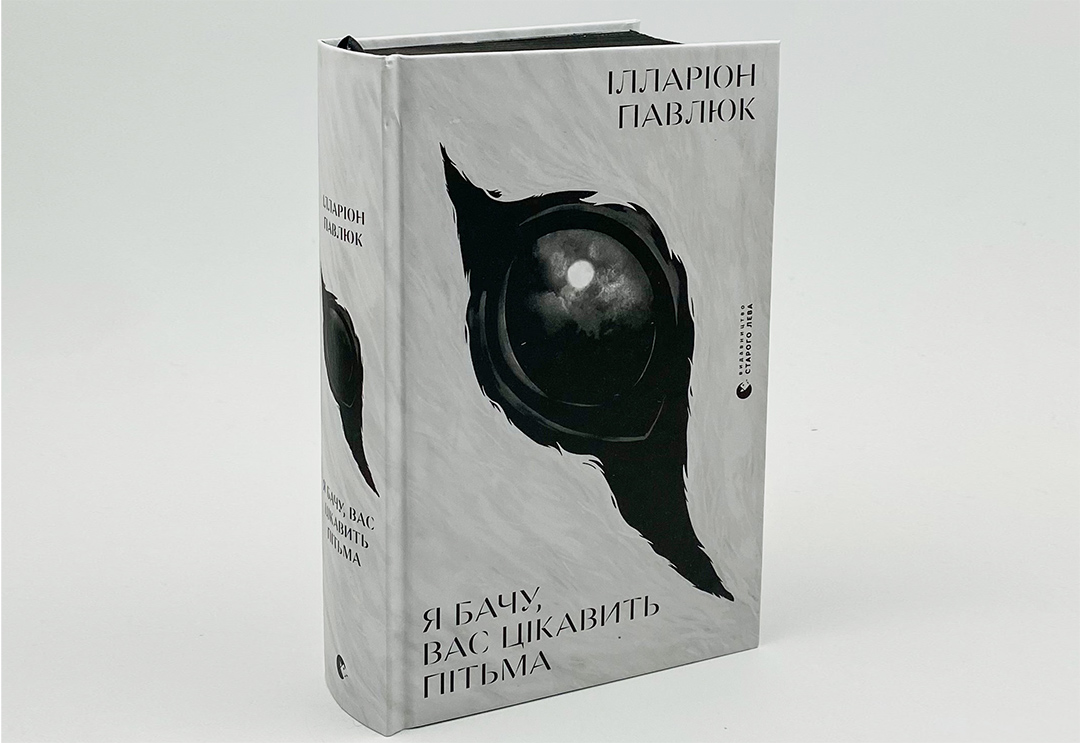
Illarion Pavlyuk’s hometown, Skadovsk in the Kherson region, like the homeland of Svitlana Taratorina, is currently under Russian occupation. Pavlyuk is not only a talented writer but also a journalist, producer, author of several documentaries, and a participant in the 2015 combat operations in eastern Ukraine. The writer successfully works in various genres and currently offers readers novels for different tastes. For example, space fiction “The Dance of the Fool,” about the adventures of cosmo-biologist Gil, a former military man who finds himself in a difficult situation and receives a “profitable offer” to participate in a scientific expedition to the mysterious planet Ix-Chel. Or the stylish noir detective “White Ash,” whose plot is a continuation and detective interpretation of Nikolai Gogol’s mystical story “Viy” – according to the plot, private detective Taras Bilyi arrives at the farmstead where a young lady was killed, trying to uncover all the eerie local secrets. The psychological thriller “I See You Are Interested in the Dark” tells the story of a criminal psychologist sent as a consultant to the godforsaken village of Buskiv Sad, where a little girl has disappeared. And, as the locals gossip, there is a Beast – a serial maniac whose existence the locals try not to notice.
Source: The Gaze







